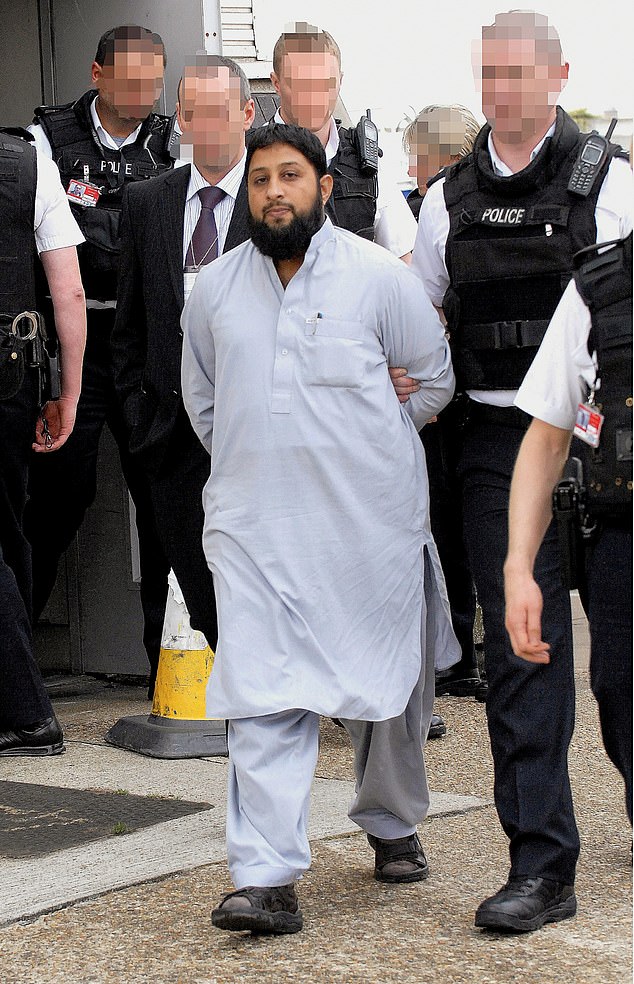An Al-Qaeda chief linked to the July 7 terror attacks and once represented by Lord Hermer could be freed from prison in weeks.
Rangzieb Ahmed, Al-Qaeda’s leader in Britain, has a fresh Parole Board hearing where he will tell officials he is a changed man and should be released.
Ahmed was jailed in 2008 for plotting carnage across Britain and was also linked to the London 7/7 bombers. He was sentenced to life with a minimum of ten years.
Ahmed – the first member of Al-Qaeda to be convicted of directing terrorism in the UK – was also connected to the failed London bomb plot two weeks later.
He is thought to have links to every major British terror cell and was heard boasting of meeting the brains behind 9/11.
A spokesperson for the Parole Board said his hearing would be held orally, with no date set.
Experts will analyse his case and decide whether to release him, direct to a full hearing or block release. He was last turned down for parole last year.
It was reported that Attorney General Lord Hermer fought for compensation for the terrorist. He tried to sue the government for alleged torture by Pakistan but the bid failed.

Rochdale-born Muslim Rangzieb Ahmed was jailed for life with a minimum of 10 years in 2008 for heading a three-man al-Qaeda cell planning mass attacks

The terror chief (pictured) could be freed from prison in weeks after the Parole Board confirmed he will have another hearing
Lord Hermer acted for Ahmed in a High Court case in 2020 when he was still in private practice at Matrix Chambers.
The defendants in the case comprised the Security Service, the Secret Intelligence Service, the Home Office, the Foreign Office, the Attorney General’s Office and Greater Manchester Police.
Ahmed has been refused parole a number of times previously. In September 2022, he was denied Parole after officials decided he was too dangerous to be released.
A year later, he was ordered to take part in a deradicalisation programme. Another bid for freedom was blocked in 2024 when parole chiefs found he was still a risk to the public.
A source said: ‘Just a year ago, he was found to have been too dangerous to the public for him to be released. This is a very warped individual. He has been hellbent on death and destruction.’
Ahmed was denied parole last year after the Board found it was likely he was still ‘susceptible to indoctrination’ and could reoffend if released onto the streets.
A report said at the time: ‘Having considered the index offence, past behaviour and the other evidence before it, the panel listed as risk factors those influences which made it more likely that Mr Ahmed would reoffend.
‘The sentencing Judge had found that Mr Ahmed was dedicated to the cause of Islamic Terrorism, with Mr Ahmed believing it was his religious duty to do so.’

Attorney General Lord Hermer (pictured) fought for compensation for the terrorist. He tried to sue the government for alleged torture by Pakistan but the bid failed
The finding continued: ‘At the time of his offending, the panel considered Mr Ahmed’s risk factors to include his need to redress injustice, a need to defend against threats and Mr Ahmed’s need for identity, meaning and belonging.
‘He had a need for status and excitement and a need to dominate others.
‘Mr Ahmed was considered to be susceptible to indoctrination and held views that justified offending.
‘The panel also considered his interpretations of his faith to be an additional risk factor.’











